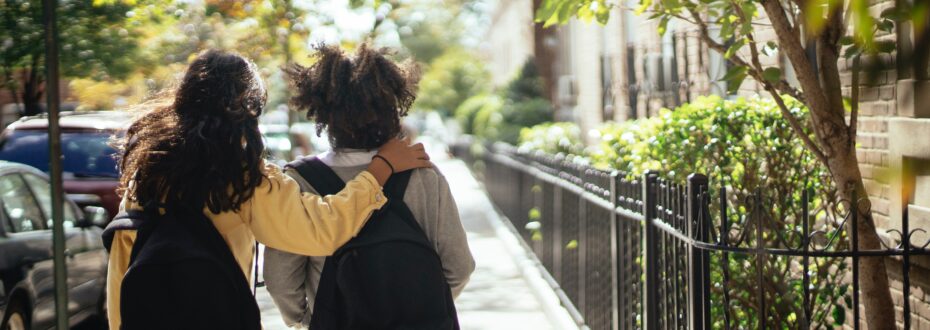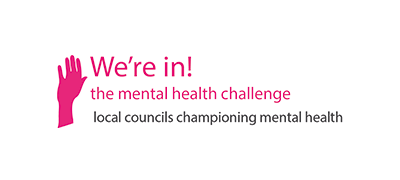17 May 2019
As Mental Health Week draws to a close for 2019, the words of a 17 year-old girl I met recently stick out in my mind: “You have to self-harm worse than anyone else just to get treatment”. She explained to me the sheer desperation with which she repeatedly tried to get help.
It began with depression and suicidal thoughts but she didn’t get the support she needed. One year on she tried to take her own life, was rushed into hospital where she received five weekly appointments after which she was “discharged in a rush”. On Christmas day she returned to A&E where she had an initial round of therapy and then a seven month wait for follow up treatment. Months later she is finally getting the right support, which is helping her to look after herself.
Unfortunately, this experience is unlikely to be unique as nationally it is estimated one in ten children aged between 5-16 years old is suffering with poor mental health, yet we have an NHS target treatment rate of just 35%. To put it more starkly, we would never accept a hospital that only set 35% of children’s broken arms, or treated 35% of cancers. As many of us who work in or have accessed mental health services know, mental health is not subject to the same focus, commitment or political ambition as physical health.
There is a child mental health crisis in our country now and that is why in Southwark we have become the first council to commit to supporting 100% of children and young people with mental health needs to access the support they need by 2020. It’s a bold step but testimonies like that of the young woman at the start of this article highlight why we need to be ambitious. The council, schools, CCG, local voluntary sector, community, young people’s representatives, parents and existing CAMHS recipients have come together to agree this ambitious, compassionate goal and together we are now starting work to turn our shared ambition into a reality.
As Southwark Council’s cabinet member for children, schools and adult care I have been struck by the innovation that I’ve seen at a local level that demonstrates that there is significant room for improvement. Exciting innovations in Birmingham and Camden are just two examples of how local government and other stakeholders are working to improve the lives of vulnerable young people through prevention of poor mental health as well as better access to services.
Locally we are looking at how digital tools can help people with mental health needs and how young people want this to look and feel. Our schools are at the forefront of fostering good mental health, and we are embedding effective preventative mental health support across our network of schools. Building on our work in primary schools, the future focus for us is our secondary schools. Beyond schools, we will work with our communities, businesses and other partners to tackle the causes and conditions of poor mental health.
Whether you are a mental health practitioner, parent, teacher, local government officer or indeed, councillor, I know there is a universal desire to deliver the best outcomes for children and young people. It simply isn’t good enough to say we will only treat some of the children who need mental health services. These formative years for children are not a dress rehearsal and effective support at the right time can make a huge difference throughout their lives. Here in Southwark we’re aiming for 100% because nothing less will do.
Cllr Maggie Browning, Southwark Council’s Mental Health Champion
As Southwark’s Mental Health Champion and as a secondary school teacher, I am delighted that Southwark has committed to 100% access to mental health services for children and adolescents by 2020. It is a bold target but one I believe the council can deliver with the right strategies, leadership and collaboration between stakeholders.
This Mental Health Awareness Week, I was able to attend a panel discussion in Southwark hosted by the EMPower Network on mental health within BAME communities. The panel was chaired by our cabinet member for community safety and public health, Cllr Evelyn Akoto, and included six fantastic panellists. We heard from the actor David Harewood, the academic Rianna Walcott and charity worker Shuranjeet Takar who spoke of their own experiences of bias, discrimination and stigma when trying to access mental health services. Prof Kevin Fenton, Southwark’s strategic director for Place and Wellbeing, and Jessica Agudela, from Mental Health First Aid England, gave their professional perspectives on mental health support for BAME communities. Prof Fenton highlighted the importance of cultural competency from healthcare providers and Jessica focused on the importance of aftercare in the community following periods of hospital care for mental health difficulties. Cllr Jasmine Ali spoke passionately about the discrimination black and Asian people face within mental health services and reiterated the council’s commitment to 100% access to mental health services for children and adolescents. The panel discussion gave the audience significant food for thought, particularly on what action needs to be taken next. As a council, it is vital we centre BAME experiences in our policies on mental health and I will be pushing for this in my role as Mental Health Champion.




